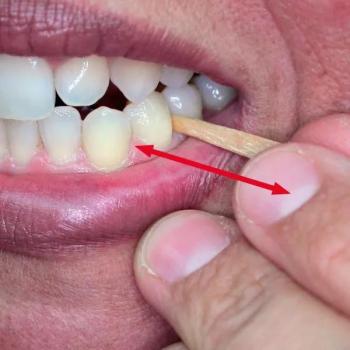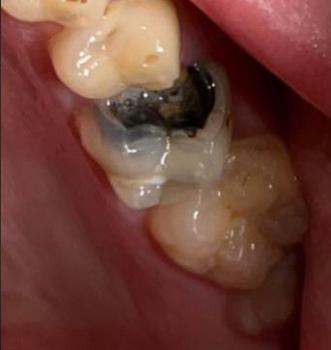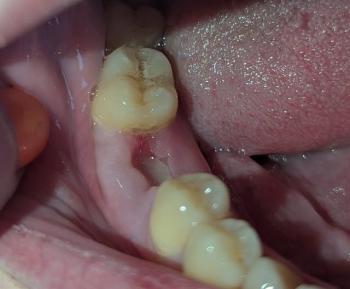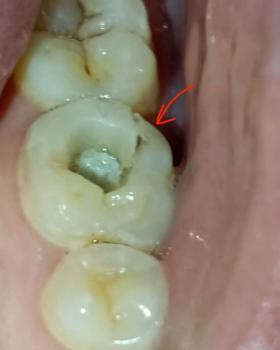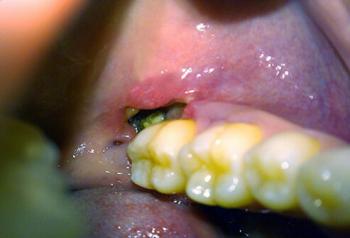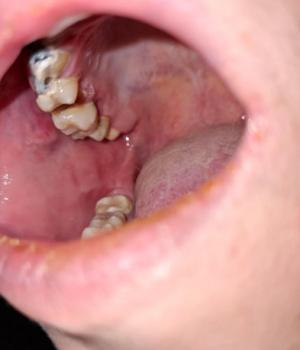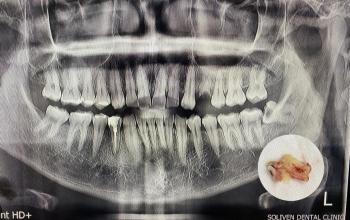We Bring Back the Sparkle in Your Smile.
A Silent Risk: How My Dental Health Almost Cost Me My Baby's Health
Language :
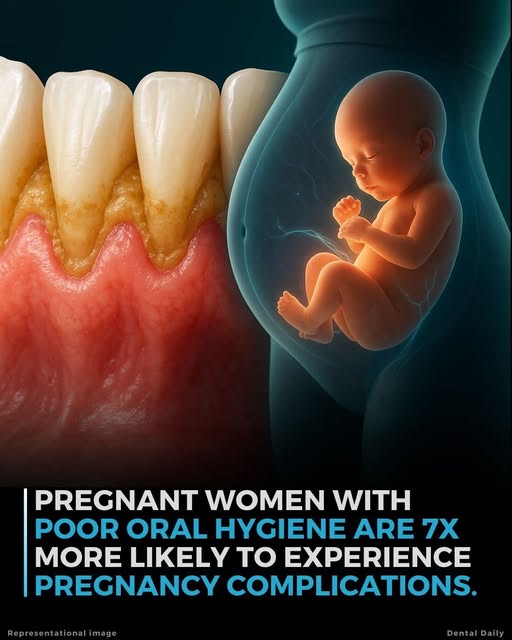
Topics:
My name is Sarah, and this is the story I wish I had read before my second trimester. It’s not just a dental story; it’s a pregnancy story, a mother’s fear, and a crucial lesson about a connection I never knew existed.
The Pregnancy and the Pain
My pregnancy with my daughter, Lily, was supposed to be a time of joy. But by the fourth month, a different kind of anticipation took over—the dread of brushing my teeth. My gums were swollen, angry, and bled at the slightest touch. Eating anything crunchy was a gamble with pain. I blamed it on "pregnancy hormones," a common annoyance I’d heard about. I thought it was just a part of the process, something to endure.
I was so focused on prenatal vitamins, eating right, and attending every OB-GYN appointment that my dental health fell to the bottom of the list. A cleaning could wait, I told myself. I had more important things to worry about.
I was wrong. So terribly wrong.
The Wake-Up Call: It’s Not Just About Teeth
At a routine prenatal checkup at 28 weeks, I mentioned the gum issue almost as an afterthought. The look on my doctor’s face immediately told me it was more serious than I thought.
"Sarah, what you're describing sounds like advanced periodontal disease," she said gently but firmly. "We need to get you to a dentist this week. This isn't just about your comfort; it's a risk factor for the baby."
The word "risk" sent a cold shock through me. Risk? From sore gums?
The Scary Science: The Mouth-Body Connection
Sitting in the dentist’s chair a few days later, the hygienist explained the terrifying connection I had been oblivious to.
"Did you know that severe gum disease during pregnancy can increase the risk of premature birth by up to seven times?" she asked.
The number hung in the air. Seven times.
She went on to explain the biological chain reaction:
-
The Problem: Pregnancy hormones make your gums more sensitive to plaque, leading to inflammation—a condition called pregnancy gingivitis. If left untreated, it can turn into periodontitis, a serious gum infection.
-
The Pathway: The inflamed, diseased gums act as an open doorway. Harmful bacteria from your mouth don't stay there; they enter your bloodstream.
-
The Target: These bacteria and the inflammatory chemicals they trigger travel through your body. They can cross the placenta and reach the amniotic sac.
-
The Consequence: Once there, they can interfere with the fetal development. The body may see the infection as a threat, potentially triggering early labor as a response. This can lead to a preterm birth and a low birth weight baby—two of the biggest concerns in neonatal health.
My "minor" gum issue was, in reality, a constant assault on my system that was putting my baby, Lily, in direct danger.
Analyzing the Risk to My Baby
Hearing the potential outcomes for Lily was the most frightening part. The dentist and my OB-GYN outlined what we were fighting against:
-
Preterm Birth: A baby born before 37 weeks. Their lungs, brain, and other organs may not be fully developed, leading to time in the NICU, breathing support, and long-term developmental challenges.
-
Low Birth Weight: Weighing less than 5.5 pounds at birth. This is often linked with preterm birth and comes with its own set of health complications, including a weakened immune system.
-
A Compromised Start: The inflammatory environment created by my gum disease could potentially affect Lily’s development from inside the womb, giving her a less than ideal foundation for health.
Taking Back Control: Safe Dental Care During Pregnancy
Terrified but empowered with knowledge, I immediately began treatment. I learned that dental care during pregnancy is not only safe but highly recommended. My dentist performed a deep cleaning (scaling and root planing) to remove the tartar and bacteria from below my gumline. It was comfortable, safe, and performed with my OB-GYN's approval.
I also adopted a rigorous at-home routine:
-
Gentle but Thorough Brushing: Using a soft-bristled toothbrush twice a day.
-
Flossing Daily: No excuses. This removes the plaque between teeth that brushing can’t reach.
-
Antibacterial Mouthwash: As recommended by my dentist to help control bacteria.
A Healthy Ending, and a Warning for Others
Thanks to the quick action of my medical team, I carried Lily to 39 weeks. She was born healthy, at a perfect weight, with a powerful set of lungs. Holding her for the first time, I felt an overwhelming wave of relief and a renewed commitment to my own health.
Good oral care in pregnancy goes far beyond a bright smile. Brushing, flossing, and routine dental checkups are as vital as prenatal vitamins and ultrasounds when it comes to safeguarding your pregnancy.
If you are pregnant or thinking about becoming pregnant, please let my story be your warning. Don’t dismiss bleeding gums as "normal." See your dentist. Your healthy gums are a direct investment in your baby’s health.
Healthy gums mean a healthier pregnancy — and a healthier baby.
Sources:
-
Jeffcoat MK, Geurs NC, Reddy MS, Cliver SP, Goldenberg RL, Hauth JC. Periodontal infection and preterm birth: results of a prospective study. J Am Dent Assoc. 2001.
-
Adeleye KK, Chung J. The impact of maternal gum disease on pregnancy outcomes using PRAMS data. PLoS One. 2025.
-
Michalowicz BS, Hodges JS, Novak MJ, et al. Treatment of periodontitis and the risk of preterm birth. N Engl J Med. 2006.

